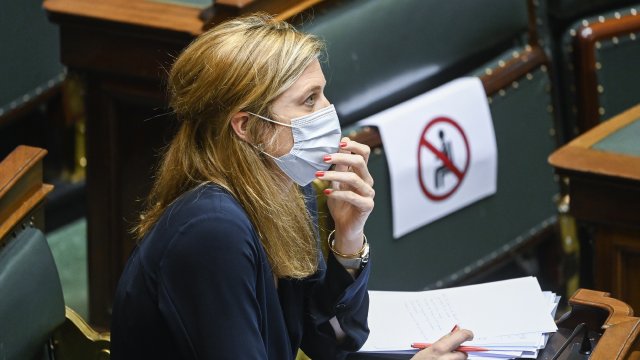Belgium's Interior Minister Annelies Verlinden will appeal against today's ruling of a Brussels court that the State has to lift "all coronavirus measures" within 30 days, she announced on Wednesday afternoon.
Verlinden decided that she will appeal against the judgment that all coronavirus measures must be lifted, to the Brussels Court of Appeal, and pointed out that the current measures will remain applicable for the time being, according to a press release by her cabinet.
The League for Human Rights started summary proceedings several weeks ago and challenged Belgium’s system of implementing the measures using Ministerial Decrees, without any input from parliament. The judge gave the Belgian State 30 days to provide a sound legal basis, or face a penalty of €5,000 per day that this period is exceeded, with a maximum limit of €200,000.
Related News
- Belgium must lift 'all Covid-19 measures' within 30 days, Brussels court rules
- 'Disgrace': Belgium criticised after court order to lift all Covid measures
Belgium's current coronavirus measures are based on the law of 15 May 2007 on civil security, which enables the State to take urgent measures in “exceptional circumstances."
The legal basis of the Ministerial Decrees has been called into question several times before, but the Council of State - which is Belgium's highest administrative court - as well as a number of correctional and civil courts, including a Court of Appeal, have previously ruled that the current legal basis does suffice, Verlinden said.
A debate on Belgium's pandemic law is taking place in the Chamber to discuss the preliminary draft, which can serve as a specific legal basis for measures to combat a pandemic.
With this, Verlinden wants to guarantee legal certainty, as well as increase the involvement and control of parliament. "We are currently awaiting the necessary advice from the Council of State to finalise this preliminary draft."
Once ready, the law is supposed to provide “a permanent legal basis, for taking this kind of restrictive measures during a pandemic.”
Maïthé Chini
The Brussels Times

